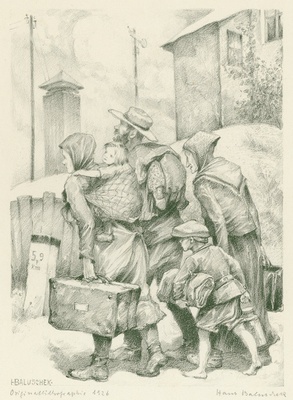The project analyses the survival strategies of rural workers, servants and housemaids in Lower Austria and Vienna and contextualises them within official norms regulating migration and mobility.
Funding
Research Network for Interdisciplinary Regional Studies (first)
Duration
April 2016 – March 2018
Principal Investigators
Ulrich Schwarz
Researcher
Description
During economic crises, especially poor, unemployed, or socially disadvantaged populations are challenged to leave their domicile and to develop survival strategies until today. In Lower Austria and Vienna, this was particularly true during the interwar years.
This period was characterized by repeated crises and high unemployment on the one hand. On the other hand, selective social security systems and the labour-market administration were introduced and established. Authorities were moreover invested in regulating and controlling in-migration and emigration and in fighting rural flight. These efforts were contrasted by farmhands’, day laborers’, and domestic workers’ frequent changes of positions. To find their livelihoods they combined – simultaneously or consecutively – different livelihoods, crossing interior and national boundaries, and migrating between urban and rural spaces.
The sub-project of the Institute of Rural History investigated agricultural or domestic laborers’ and servants’ mobility in Lower Austria and Vienna. It examined their livelihood strategies and possibilities in the context of new laws and official measures. In this context, a comprehensive and heterogeneous source base such as testimonies, official documents, and contemporary political and scholarly publications was collected.
